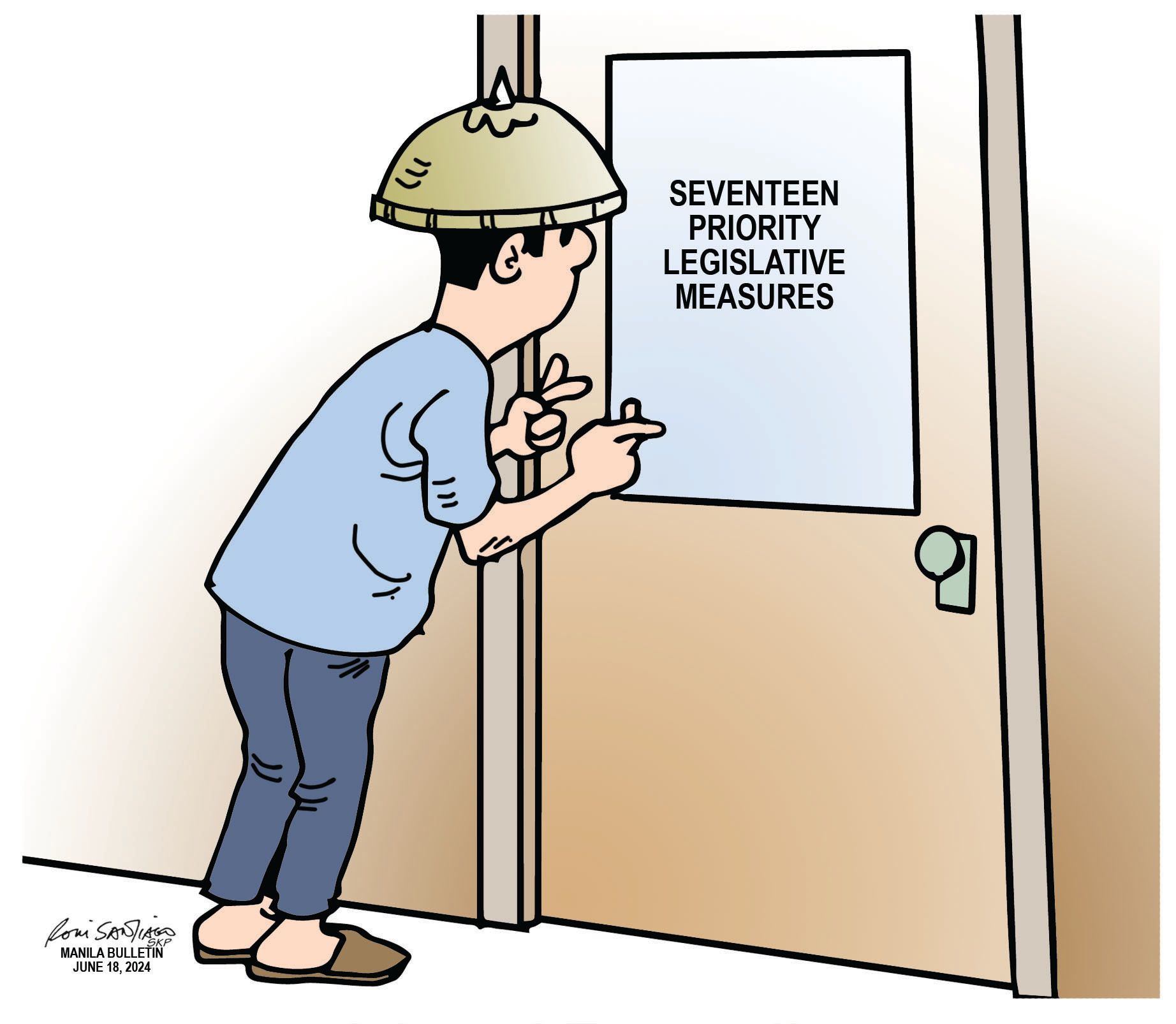
Seventeen priority legislative measures have been submitted for enactment by the 19th Congress during its final session from July 2024 to June 2025 by the Legislative-Executive Development Advisory Council (LEDAC). Urgency is emphasized as increasing attention to partisan activities is likely as next year’s mid-term elections draw nearer. These proposed laws may be categorized into: defense and security, education reform and youth development, revenue generation, government reform, and environment sustainability.
Topping the security agenda is the Philippine Defense Industry Development Act (PDIDA), also known as the Self-Reliant Defense Posture Act that seeks to lessen dependence on the country’s allies for provision of defense requirements. First implemented in 1974 in response to the Muslim secessionist movement, it needs to be updated in light of current imperatives. Relatedly, the Philippine Maritime Zones Act aims to “declare the rights and entitlements of the Philippines over its maritime zones, including the underwater features for the enjoyment and cultivation of Filipinos in compliance with the United Nations Convention on the Law of the Sea (UNCLOS). It also seeks to strengthen the country’s claims in territorial disputes, including Sabah.
Elevating the morale of the country’s soldiers is being sought through the proposed passage of the Military and Uniformed Personnel Pension Reform Bill. The Instituting a National Citizens Service Training Act will increase awareness among the youth of their civic duty in protecting the state.
Other youth-oriented priority measures are the Academic Recovery and Accessible Learning (ARAL) Program Act and the Enterprise-Based Education and Training (EBET) Program Act. The ARAL Program seeks to ensure that young learners attain basic competencies in reading, science, and mathematics which are significantly lower than international norms.
The EBET Program targets middle-level workers’ training as it consolidates apprenticeship, dual training, on-the-job training programs and all other forms of industry-based training arrangements.
Revenue generation measures have also been prioritized. These are: Amendments to the Anti-Agricultural Smuggling Act, Anti-Financial Accounts Scamming Act (AFASA), Value Added Taxes (VAT) on Digital Services, Enhancing Philippine Tax Incentives or CREATE MORE, which stands for the Corporate Recovery and Tax Incentives for Enterprises to Maximize Opportunities for Reinvigorating the Economy, that proposes reducing income tax for local and resident foreign entities from 25 percent to 20 percent.
Improving the efficiency of governance is the objective of the proposed enactment of the E-Governance Act, complemented by the Open Access in Data Transmission Act, and Amendments to the Government Procurement Reform Act.
Finally, there are priority measures, too, for environment sustainability, such as the Waste to Energy bill, the Blue Economy Act, and the proposed creation of a Department of Water Resources and Services.
President Ferdinand R. Marcos, Jr. has declared: "Our people are eagerly awaiting the passage of the 17 priority bills certified by LEDAC, which, if passed and enacted, will steer our national development and improve the conditions of our fellow countrymen.”
How Congress will fare in terms of enacting these priority bills could be a vital criterion for the citizenry in assessing the worthiness of those seeking reelection — or for looking out for worthier choices when they go to the polls in May 2025.